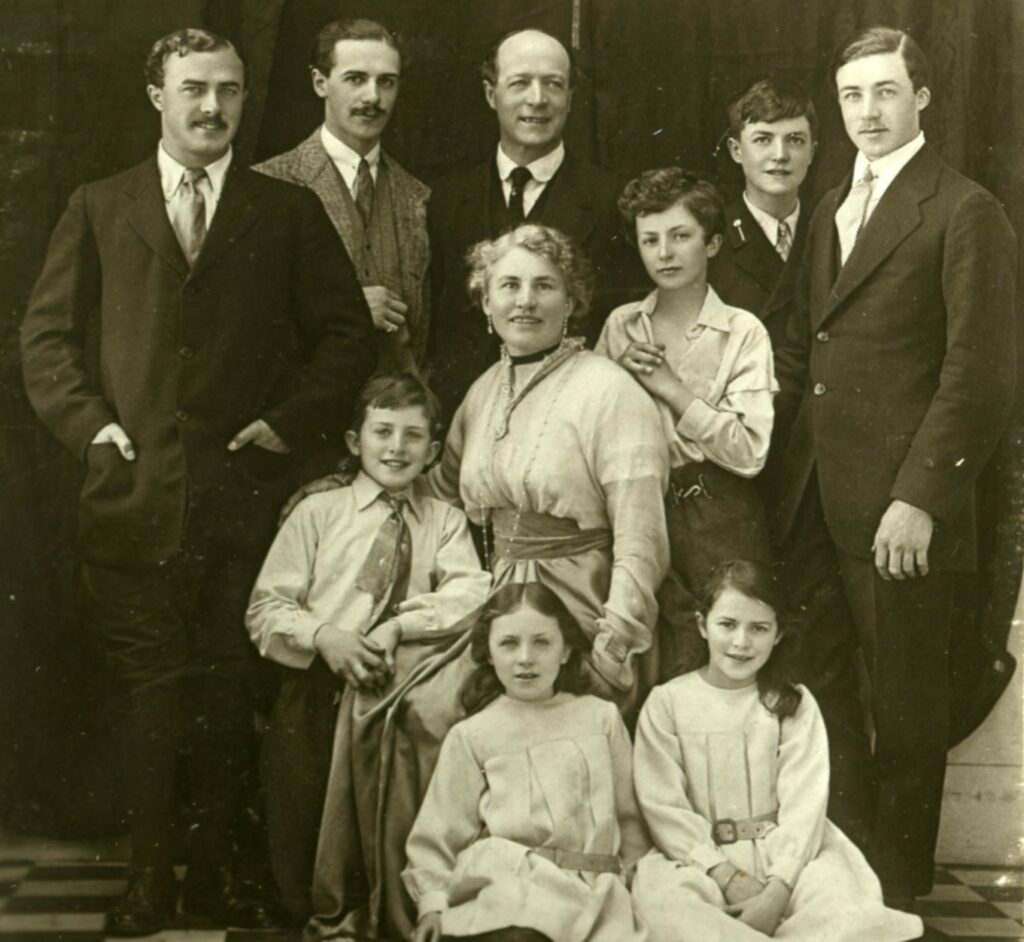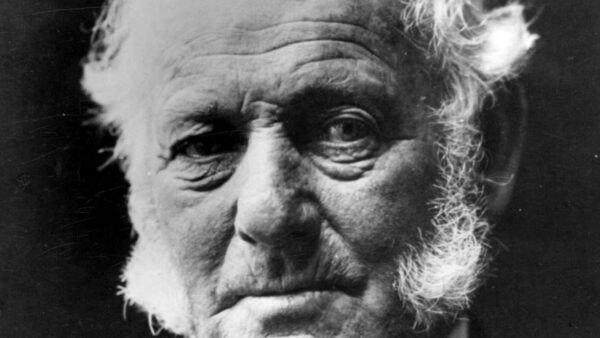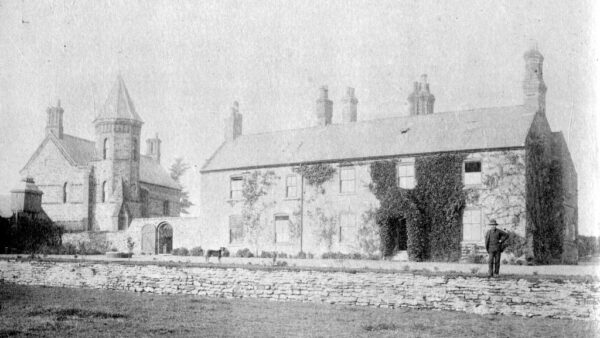
Folk Fishing in North Lincolnshire 1905 – 1908: Who Were the Folk that were Fished?
Helen Earl, guest contributor
A Rescue Mission
Between 1905 and 1908, Australian born composer Percy Grainger, collected folk songs in North Lincolnshire. He was influenced by the ideas of the Folk Song Society, formed in 1899.
Nationally, there were mounting concerns about the effect of urbanisation on the population. Removing people from the land would result in weaker citizens, out of touch with English roots. English culture would be lost. The musical world also had concerns, too much Germanic music with no English compositions to compete. The Folk Song Society felt the need to collect songs from rural areas before they disappeared and to use these as a basis for new, English music.

An Out of the Way Nook and Corner
Cecil Sharp was a driving force behind folk song collecting. North Lincolnshire was a prime example of an ‘out-of-the-way nook and corner, [where he said it was possible] to come upon peasant men and women’.
Grainger had become infected with the ideas of the Folk Song Society and had a friendship with Gervase and Winefride Elwes, residents of Brigg. The family had shown zeal in establishing the North Lincolnshire Musical Competitions. The first was held in 1900, and through these events, relationships with the villages developed. They toured to gain support, rehearsed and conducted village choirs. They added a folk song class to the 1905 competition and aided Grainger with his collecting.

Success of Fraud?
To contemporaries the “mission” was successful. Folk songs were saved and composers used them in new music. However, recent academics have criticised, stating, amongst other things, that collectors misrepresented or omitted singers to create a picture of rural life that wasn’t true. Painting singers as an isolated peasantry that didn’t exist. Criticism hinges around the term “peasant” and its derogatory connotations. Contemporary and modern dictionary definitions however, cite “peasant” as people reliant on the land for a living. So who were the North Lincolnshire singers? Were they peasants? Did Grainger ignore singers who weren’t? Did he misrepresent? Or, was his collecting more encompassing and genuine? Census returns, cross referenced with Grainger’s notes, make it possible to find out. From the 1901 census, 44% of Grainger’s thirty-nine singers were reliant on the land for a living. However, 56% were of a different way of life.
An Eclectic Mix: Six Singers of Interest
William John Beverley fits the typical profile. He spent the majority of his life in comparative isolation from modern ideas in the Kirton and Grayingham area. He told Grainger that he had been a “Malster” for twenty years, but the majority of census returns list him as an agricultural labourer. He was a widower with two young daughters by 1871. He sang to Grainger in Brigg Workhouse on 5 September 1905. He is also mentioned in a notebook Folk songs to work at: folksongs to ask for: Grainger possibly considered him a valuable asset.
Elizabeth Bowskill represents the changing face of North Lincolnshire. She was the daughter of a Crowle chimney sweep. Once married she was quickly engulfed by industrial life, railways in Doncaster then iron working in Scunthorpe. She ended life in Brigg Workhouse. She was more urbanised than a “keeper of songs” should have been. Any songs she may have grown up with should have been forgotten through her lack of contact with “the land” according to contemporary thought.
Alfred Atkinson was born to more privilege than one would assume of a “typical” singer. For the majority of his working life, as Civil Engineer for the Ancholme Drainage and Navigation Authority, he was head of the household, supporting siblings and a servant. They lived at 33 Bridge Street, Brigg, a five bedroom property. Alfred sent one song to the Folk Song Society Journal himself, before Grainger visited. He perhaps picked songs up through his work around the county. He was a collector of antiquities: a newspaper article from the time of his sister’s death indicates a collection of interesting objects that had belonged to him. He also wrote and published academic papers on the discoveries of the Brigg Boat and Brigg Raft.
Ann Hiles was young for a singer, aged about thirty-nine in 1905. Collectors should have disregarded her based on her age. When Grainger collected, she was working as maid for the Peacock family in Kirton. Her family were agricultural labourers and she would have had every opportunity to absorb the pure music collectors were desperate to preserve. Single women often boarded with family members, but doing so would have stretched finances. Agricultural work for women was also becoming more difficult to come by. She was lucky to find work with the Peacocks and it was probably them who brought her to the notice of Grainger: as collectors of words and folk lore they were aware of the call for folk song preservation.
Although of the labouring class, George Leaning was not reliant on the land for a living. He was a brick worker from Barton. He is often mistaken for his brother Joseph, who also sang to Grainger. George was a Methodist, he re-married in the Barton chapel in 1881. Collectors felt that church going and church music was contributing to the loss of the old songs: not the case with George.
Collectors felt women were shy of singing to a man. However, Rhoda Thompson entered the music festival and was recorded with the phonograph. On the 1851 census, she is listed as Rhode Barrick in Liverpool. Her father, a basket maker, was born in Barrow. Barricks were resident in Barrow throughout the period and Rhoda was likely related. Basket making was an important industry and the Barricks were important: ‘Mr. James Barrick to the Royal Commission in 1866…[said] “I employ 100 children in osier peeling”…’ Rhoda moved about the country but split life between urban settings and the Barrow area. William, her husband, was listed as a “travelling loco inspector” in 1891: his occupation possibly explaining their movement.
Grainger’s singers were an eclectic mix and his collecting was fair and genuine: Lady Elwes said … he ‘never had the slightest hesitation in pumping anybody he came across’!
Focus On

Landowners, Bishops and Singers: the Story of the Elwes Family
An online exhibition looking at the history of the Elwes family and their impact on the local area.
Read the story
Joseph Taylor and Brigg Fair
How one Lincolnshire-born folk singer contributed to the cultural revival of folk music across England.
Read the story
The Peacock Family
Discover the Peacocks. A family of distinguished scholars from Bottesford Manor.
Read the story
The Story of “a Lincolnshire Man”
Julia Pollock, Director of Folk ‘Round ‘Ere, writes about their project celebrating the life of local musician Mo Ogg.
Read the story